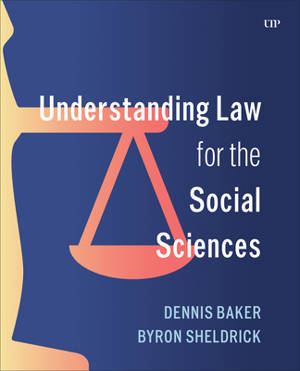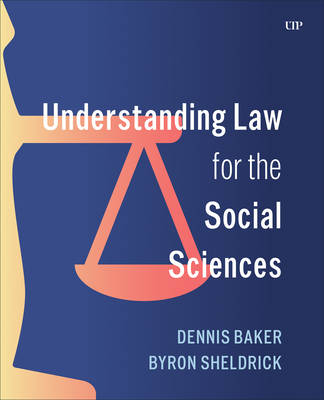
Bedankt voor het vertrouwen het afgelopen jaar! Om jou te bedanken bieden we GRATIS verzending (in België) aan op alles gedurende de hele maand januari.
- Afhalen na 1 uur in een winkel met voorraad
- In januari gratis thuislevering in België
- Ruim aanbod met 7 miljoen producten
Bedankt voor het vertrouwen het afgelopen jaar! Om jou te bedanken bieden we GRATIS verzending (in België) aan op alles gedurende de hele maand januari.
- Afhalen na 1 uur in een winkel met voorraad
- In januari gratis thuislevering in België
- Ruim aanbod met 7 miljoen producten
Zoeken
€ 122,45
+ 244 punten
Uitvoering
Omschrijving
Understanding Law for the Social Sciences provides students with essential tools to study Canadian law from various disciplinary perspectives. It introduces key legal principles and concepts, ensuring that social science students build a strong foundation to engage confidently with legal topics.
The book focuses on legal doctrines, helping students understand how these doctrines are applied by lawyers, judges, and legal scholars. To achieve this aim, it begins with chapters that cover the sources of law, legal reasoning, and statutory interpretation. Subsequent chapters introduce substantive areas of law, including constitutional law, criminal law, administrative law, contract law, tort law, property law, labour law, and environmental law. For each of these areas, the text not only outlines core concepts and terminology but also illustrates how legal controversies intersect with public debates, state authority, self-governance, and public policy.
Designed as an introduction to law and legal concepts, Understanding Law for the Social Sciences prepares undergraduate students to engage with legal matters that they might further examine in law school or explore in social science graduate study. While the book is especially beneficial for political science students due to its focus on public policy, its broad scope offers valuable insights for anyone interested in understanding the role of law in society.
The book focuses on legal doctrines, helping students understand how these doctrines are applied by lawyers, judges, and legal scholars. To achieve this aim, it begins with chapters that cover the sources of law, legal reasoning, and statutory interpretation. Subsequent chapters introduce substantive areas of law, including constitutional law, criminal law, administrative law, contract law, tort law, property law, labour law, and environmental law. For each of these areas, the text not only outlines core concepts and terminology but also illustrates how legal controversies intersect with public debates, state authority, self-governance, and public policy.
Designed as an introduction to law and legal concepts, Understanding Law for the Social Sciences prepares undergraduate students to engage with legal matters that they might further examine in law school or explore in social science graduate study. While the book is especially beneficial for political science students due to its focus on public policy, its broad scope offers valuable insights for anyone interested in understanding the role of law in society.
Specificaties
Betrokkenen
- Auteur(s):
- Uitgeverij:
Inhoud
- Aantal bladzijden:
- 276
- Taal:
- Engels
Eigenschappen
- Productcode (EAN):
- 9781487593339
- Verschijningsdatum:
- 22/07/2025
- Uitvoering:
- Paperback
- Formaat:
- Trade paperback (VS)
- Afmetingen:
- 190 mm x 234 mm
- Gewicht:
- 539 g

Alleen bij Standaard Boekhandel
+ 244 punten op je klantenkaart van Standaard Boekhandel
Beoordelingen
We publiceren alleen reviews die voldoen aan de voorwaarden voor reviews. Bekijk onze voorwaarden voor reviews.









